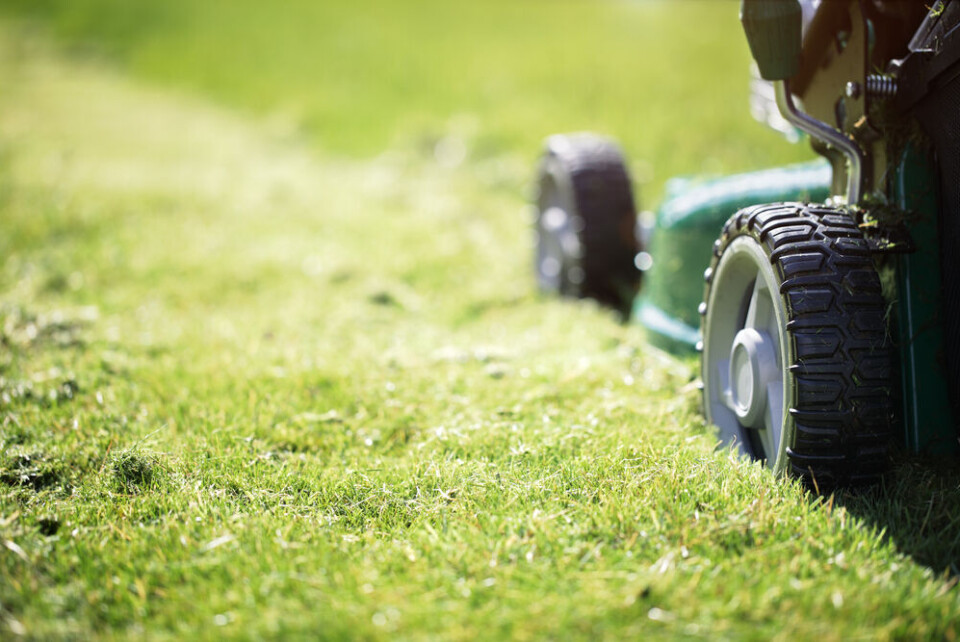-
Pistes closed, confinement orders: Alpine resorts deal with avalanche risk
Increased snowfall this weekend may cause further closures as busy school holiday season continues
-
Former French Interior Minister announces 2027 presidential candidacy
Bruno Retailleau recently asked prefectures to be tough on immigration
-
From Oregon to Brittany: primrose nursery in France celebrates 90th anniversary
Barnhaven Primroses traces its history back to 1930s America
Grass cuttings are no longer accepted at some public tips in France
Increasing numbers of public déchetteries are asking you to take care of your cuttings at home

Mowing your lawn in France? Check before you take your grass cuttings to your local tip, as some have started to ban people from bringing them.
Since January 1 this year, the Rennes Métropole (Brittany) has been refusing any grass cuttings from individuals at any of its 25 déchetteries - serving an estimated 450,000 people - in a bid to encourage gardeners to use and dispose of the offcuts at home.
This is despite grass cuttings making up to 30% of the typical green waste dumped at local tips. However, the tips themselves often struggle to manage the cuttings, as they are up to 80% water, and have little use.
Similarly, dumping grass is not particularly environmentally-friendly, as people use their car to transport the cuttings, which then have to be transported somewhere else - by the tip managers - in a larger van. They are also typically transported in non-recyclable plastic bags.
The Rennes Métropole estimates that transporting the cuttings equates to 380 kg of cuttings per year per resident, of individual homes alone.
‘Changing their habits’
Aude Jaouen, who is tasked with sharing the ‘no grass cuttings’ message to people in the Rennes area, said: “Almost everyone knows about it now. There are some who are angry, but that is normal, as we are asking people to change their habits. But most people have accepted it well.”
She has also shared ways that gardeners can dispose of or use their grass cuttings, instead of dumping them at the tip. “There is a solution for everyone,” she said to 20 Minutes.
Rennes is not the only city to ask its residents to do more with their own lawn trimmings; the Bourg-en-Bresse (Ain) community - the Grand Bourg agglomération - has banned grass clippings from its tips since March 1, 2023.
"In our waste reduction strategy, this seemed to be one of the easiest options to put in place," said Jean-Luc Roux, the elected official responsible for waste policy.
The authority gave residents a three-month transition period, so they could get used to the new rules.
"We had a lot of resistance at the beginning. That is why we had a period of tolerance,” he said. “The tip agents were warned in advance, and they were able to take the time to explain how to keep the grass at home.”
Good alternative: Mulching
One option for gardeners is to ‘mulch’ the cuttings, which means using a mower with a ‘mulching’ attachment, and then just leaving the offcuts where they are. This makes the lawn greener, and more resistant to drought and heat.
Mulching attachments cut up the grass very finely, so it can be sprinkled over plants, tree roots, and in allotments, and be absorbed back into the soil more easily.
Gardeners with larger lawns, or who cut a lot, may need to use a larger mulching machine.
It is a fine balance, however, as adding too much mulch can cause fermentation.
Less green waste
In Grand-Bourg, the policy appears to be paying off. Mr Roux said that the agglomération has seen its green waste fall by 1,000 tonnes, or around 10%, in just a year.
Some people have taken to dumping their grass illegally elsewhere, such as on wasteland, but this has not been as bad as they feared.
"We did have a few mayors who told us that they had found grass deposited, but it was not frequent,” he said.
Read also
Rules on what to do with garden waste in France
How to get a déchetterie permit in France with a UK-registered car
What can I do with used gas bottles in France?
























